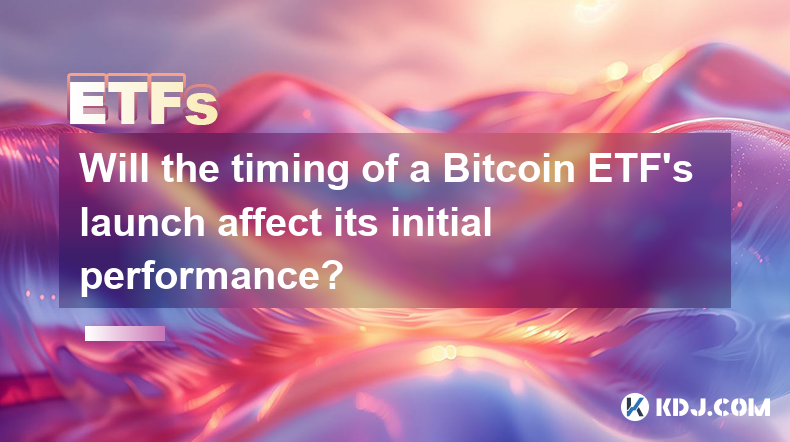-
 Bitcoin
Bitcoin $84,367.7234
1.25% -
 Ethereum
Ethereum $1,600.1723
1.83% -
 Tether USDt
Tether USDt $0.9998
0.00% -
 XRP
XRP $2.0964
1.79% -
 BNB
BNB $582.2457
0.34% -
 Solana
Solana $133.1948
6.30% -
 USDC
USDC $1.0000
0.00% -
 Dogecoin
Dogecoin $0.1569
2.16% -
 TRON
TRON $0.2449
-2.83% -
 Cardano
Cardano $0.6186
2.17% -
 UNUS SED LEO
UNUS SED LEO $9.4458
0.78% -
 Chainlink
Chainlink $12.5745
2.94% -
 Avalanche
Avalanche $19.2746
2.70% -
 Toncoin
Toncoin $2.9610
3.97% -
 Stellar
Stellar $0.2387
2.17% -
 Shiba Inu
Shiba Inu $0.0...01198
3.08% -
 Sui
Sui $2.0974
0.75% -
 Hedera
Hedera $0.1592
1.60% -
 Bitcoin Cash
Bitcoin Cash $335.3208
4.54% -
 Litecoin
Litecoin $75.1855
-0.65% -
 Polkadot
Polkadot $3.6127
2.24% -
 Hyperliquid
Hyperliquid $16.1266
8.37% -
 Dai
Dai $1.0001
0.02% -
 Bitget Token
Bitget Token $4.3594
4.35% -
 Ethena USDe
Ethena USDe $0.9992
0.01% -
 Pi
Pi $0.6125
0.37% -
 Monero
Monero $219.0095
-0.11% -
 Uniswap
Uniswap $5.2454
1.81% -
 OKB
OKB $51.1779
-2.16% -
 Pepe
Pepe $0.0...07259
3.16%
Will the timing of a Bitcoin ETF’s launch affect its initial performance?
The timing of a Bitcoin ETF launch significantly impacts its performance, influenced by market sentiment, regulatory clarity, and Bitcoin's price at launch.
Apr 01, 2025 at 08:00 am

The Impact of Launch Timing on Bitcoin ETF Performance
The launch timing of a Bitcoin ETF (Exchange-Traded Fund) is a crucial factor that could significantly influence its initial market performance. Several market dynamics interact to shape this initial reception. Investor sentiment, regulatory clarity, and the overall cryptocurrency market climate all play a role. A well-timed launch can capitalize on positive market trends and investor enthusiasm, while a poorly timed launch might face headwinds and subdued interest.
Market Sentiment and Investor Psychology
The prevailing sentiment within the cryptocurrency market at the time of a Bitcoin ETF launch is paramount. A bull market, characterized by rising prices and optimism, would likely lead to a more enthusiastic reception and potentially higher initial trading volume and price. Conversely, a bear market, marked by falling prices and pessimism, could dampen investor interest, resulting in lower initial performance. Investor confidence is directly linked to the success of a new ETF.
Regulatory Landscape and Investor Confidence
The regulatory environment surrounding Bitcoin and cryptocurrencies in general plays a significant role. A launch following a period of positive regulatory developments, such as clear guidelines and approvals from key regulatory bodies, would likely boost investor confidence and attract institutional investment. Conversely, a launch amid regulatory uncertainty or negative news could deter investors and negatively impact initial performance. Regulatory clarity is essential for attracting institutional money.
Competition and Market Saturation
The number of existing Bitcoin investment vehicles also matters. If the market is already saturated with similar products, a new Bitcoin ETF might face stiffer competition and struggle to gain significant market share initially. A launch in a relatively less crowded market could provide a competitive advantage and potentially lead to better initial performance. Competitive landscape analysis is vital for ETF managers.
Seasonality and Macroeconomic Factors
Broader macroeconomic conditions and seasonal trends can also influence the initial performance of a Bitcoin ETF. Positive economic news or a generally optimistic market outlook could benefit the ETF, while negative economic news or a pessimistic outlook could negatively affect it. Macroeconomic factors are beyond the control of ETF managers but must be considered.
The Role of Marketing and Public Relations
A successful marketing and public relations campaign can significantly impact the initial reception of a Bitcoin ETF. A well-executed campaign can generate excitement and attract investors, leading to higher initial trading volume and price. Conversely, a poorly executed campaign could fail to attract sufficient investor interest, negatively affecting initial performance. Marketing and PR are crucial for raising awareness.
Step-by-Step Launch Process and its Influence
The actual launch process itself can influence initial performance. A smooth, efficient launch, free from technical glitches or delays, will foster confidence. Conversely, a problematic launch could damage investor confidence and negatively impact the ETF's initial performance.
- Pre-launch marketing and education: Creating anticipation and explaining the ETF's benefits.
- Securities and Exchange Commission (SEC) approval: Obtaining necessary regulatory approvals.
- Exchange listing: Getting the ETF listed on major exchanges for trading.
- Initial marketing push: Launching a concentrated marketing campaign upon listing.
- Ongoing investor relations: Maintaining communication and building trust with investors.
The Importance of Liquidity
The liquidity of a Bitcoin ETF upon launch is crucial. High liquidity, meaning the ability to buy and sell the ETF easily without significantly affecting its price, is desirable. Low liquidity could lead to price volatility and make it difficult for investors to enter or exit their positions, potentially harming initial performance. Liquidity is essential for a successful launch.
The Impact of Bitcoin's Price at Launch
The price of Bitcoin itself at the time of the ETF launch is a significant factor. If Bitcoin is experiencing a price surge, the ETF is likely to benefit from this positive momentum. Conversely, if Bitcoin's price is declining, the ETF may face headwinds. Bitcoin's price directly correlates with ETF performance.
Institutional Investor Participation
The level of participation from institutional investors can significantly impact the initial performance of a Bitcoin ETF. Strong institutional interest can drive up demand and price, while a lack of institutional interest could limit the ETF's initial success. Institutional adoption is a key indicator of long-term success.
Frequently Asked Questions
Q: What is the biggest risk to a Bitcoin ETF's initial performance?
A: The biggest risk is likely a combination of negative market sentiment, regulatory uncertainty, and a lack of investor confidence, all of which could significantly suppress initial demand and price.
Q: How can a Bitcoin ETF mitigate the risks associated with timing?
A: A well-executed marketing and education campaign, coupled with a smooth launch process and a focus on liquidity, can help mitigate timing risks. A strong regulatory framework also provides a solid foundation.
Q: Will a Bitcoin ETF always perform well regardless of the timing of its launch?
A: No, the timing of a Bitcoin ETF launch is a significant factor that can greatly influence its initial performance. While a strong underlying asset (Bitcoin) is important, a poor launch timing can negate its potential.
Q: What role does the overall crypto market play in the ETF’s initial performance?
A: The overall crypto market's health and sentiment are crucial. A bullish market generally benefits the ETF, while a bearish market can significantly hamper its initial performance.
Q: How important is SEC approval to the ETF’s success?
A: SEC approval is paramount. Without it, the ETF cannot legally launch, eliminating any chance of success. The timing of this approval significantly impacts investor confidence and market readiness.
Disclaimer:info@kdj.com
The information provided is not trading advice. kdj.com does not assume any responsibility for any investments made based on the information provided in this article. Cryptocurrencies are highly volatile and it is highly recommended that you invest with caution after thorough research!
If you believe that the content used on this website infringes your copyright, please contact us immediately (info@kdj.com) and we will delete it promptly.
- Solana (SOL) Just Scored a Major Win in Canada, Opening the Doors to Institutional Adoption
- 2025-04-17 14:15:14
- 3 Crypto Projects Poised to Explode in 2025
- 2025-04-17 14:15:14
- The net issue for new housing loans continues to grow in the euro zone
- 2025-04-17 14:10:13
- Footprint Analytics Partners with AI Flow to Revolutionize Web3 Data Analytics
- 2025-04-17 14:10:13
- The anticipated price highlight of Solana blockchain reaching $400 by 2025 increases market talk
- 2025-04-17 14:05:13
- Introducing LaunchLab, Raydium's all-in-one token launchpad.
- 2025-04-17 14:05:13
Related knowledge

What is the difference in returns between long-term holding of a Bitcoin ETF and holding Bitcoin directly?
Apr 09,2025 at 04:15am
When considering the difference in returns between long-term holding of a Bitcoin ETF and holding Bitcoin directly, it's essential to understand the nuances and factors that affect each investment option. Both approaches have their unique advantages and potential drawbacks, which can significantly impact the overall returns over time. Understanding Bitc...

How is the "roll cost" of a futures Bitcoin ETF generated?
Apr 08,2025 at 01:22pm
The 'roll cost' of a futures Bitcoin ETF is a critical concept for investors to understand, as it directly impacts the performance of the ETF. In this article, we will delve into the mechanics of how the roll cost is generated, exploring the underlying processes and factors that contribute to this cost. Understanding Futures ContractsFutures contracts a...

How can the premium or discount of a Bitcoin ETF be narrowed through an arbitrage mechanism?
Apr 09,2025 at 12:07am
Arbitrage mechanisms play a crucial role in narrowing the premium or discount of a Bitcoin Exchange Traded Fund (ETF). Understanding how these mechanisms work can provide valuable insights into the dynamics of Bitcoin ETFs and their relationship with the underlying asset. This article will delve into the specifics of how arbitrage can be used to align t...

What factors affect the bid-ask spread of a Bitcoin ETF?
Apr 08,2025 at 08:50pm
The bid-ask spread of a Bitcoin Exchange Traded Fund (ETF) is a critical metric that investors and traders closely monitor. It represents the difference between the highest price a buyer is willing to pay (bid) and the lowest price a seller is willing to accept (ask). Several factors influence this spread, and understanding them can help investors make ...

How is the seed capital of a Bitcoin ETF used?
Apr 10,2025 at 02:15pm
The seed capital of a Bitcoin ETF plays a crucial role in the establishment and operation of the fund. This initial investment is used to create the fund's underlying assets, manage operational costs, and ensure the ETF can start trading on an exchange. Understanding how this seed capital is utilized provides insight into the mechanics of Bitcoin ETFs a...

What is the difference between "physically backed" and "synthetic" Bitcoin ETFs in terms of holding assets?
Apr 10,2025 at 04:56pm
Bitcoin Exchange Traded Funds (ETFs) have become a popular way for investors to gain exposure to the cryptocurrency market without directly owning the underlying asset. There are two primary types of Bitcoin ETFs: physically backed and synthetic. Understanding the differences between these two types, particularly in terms of how they hold assets, is cru...

What is the difference in returns between long-term holding of a Bitcoin ETF and holding Bitcoin directly?
Apr 09,2025 at 04:15am
When considering the difference in returns between long-term holding of a Bitcoin ETF and holding Bitcoin directly, it's essential to understand the nuances and factors that affect each investment option. Both approaches have their unique advantages and potential drawbacks, which can significantly impact the overall returns over time. Understanding Bitc...

How is the "roll cost" of a futures Bitcoin ETF generated?
Apr 08,2025 at 01:22pm
The 'roll cost' of a futures Bitcoin ETF is a critical concept for investors to understand, as it directly impacts the performance of the ETF. In this article, we will delve into the mechanics of how the roll cost is generated, exploring the underlying processes and factors that contribute to this cost. Understanding Futures ContractsFutures contracts a...

How can the premium or discount of a Bitcoin ETF be narrowed through an arbitrage mechanism?
Apr 09,2025 at 12:07am
Arbitrage mechanisms play a crucial role in narrowing the premium or discount of a Bitcoin Exchange Traded Fund (ETF). Understanding how these mechanisms work can provide valuable insights into the dynamics of Bitcoin ETFs and their relationship with the underlying asset. This article will delve into the specifics of how arbitrage can be used to align t...

What factors affect the bid-ask spread of a Bitcoin ETF?
Apr 08,2025 at 08:50pm
The bid-ask spread of a Bitcoin Exchange Traded Fund (ETF) is a critical metric that investors and traders closely monitor. It represents the difference between the highest price a buyer is willing to pay (bid) and the lowest price a seller is willing to accept (ask). Several factors influence this spread, and understanding them can help investors make ...

How is the seed capital of a Bitcoin ETF used?
Apr 10,2025 at 02:15pm
The seed capital of a Bitcoin ETF plays a crucial role in the establishment and operation of the fund. This initial investment is used to create the fund's underlying assets, manage operational costs, and ensure the ETF can start trading on an exchange. Understanding how this seed capital is utilized provides insight into the mechanics of Bitcoin ETFs a...

What is the difference between "physically backed" and "synthetic" Bitcoin ETFs in terms of holding assets?
Apr 10,2025 at 04:56pm
Bitcoin Exchange Traded Funds (ETFs) have become a popular way for investors to gain exposure to the cryptocurrency market without directly owning the underlying asset. There are two primary types of Bitcoin ETFs: physically backed and synthetic. Understanding the differences between these two types, particularly in terms of how they hold assets, is cru...
See all articles























































































